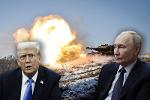The financial crisis hits Romania despite all promises made by politicians, but the media seems to be the only segment of the society to admit it. Politicians are busy making electoral promises, even if this means forcing the future Government to adopt populist measures.
Central Bank Governor Mugur Isarescu, the most probable suggestion for the future Prime Minister seat, says he wasn't even asked if he would like to return to politics or not. Isarescu, Central Bank Governor since the early '90's, was prime minister for one year, between 1999 and 2000, and has been considered lately as the most viable option for the seat as head of Government. Romania president Traian Basescu declared recently that the Democrat-Liberal candidate for the office, Teodor Stolojan, is a good option, but he may still name "a man able to gather the political parties around him", a statement that led to speculations around Isarescu, Gandul reads.
In the Government, things look increasingly strange. First, two newspapers - Evenimentul Zilei and Cotidianul - announce that the pollution tax for new cars may be eliminated, given the 30% fall of the market in October and the increasingly difficult access to credits. Then, Cotidianul adds that the import of second-hand cars older than 10 years increased 500% between July and October, up to 74,000 units, compared to 14,441 units between January and July.
Gandul wraps up the subject, showing that Prime Minister Tariceanu has made a decision: the pollution tax for new cars will not be cancelled. Instead, Tariceanu promises a 10 billion Euros capital injection on the market, through decreasing taxes and duties, offering bonuses to all those who declare their income in time, subsidies and bonuses for the creation of new jobs.
In response to these promises, Cotidianul publishes a wide article, "The day th





